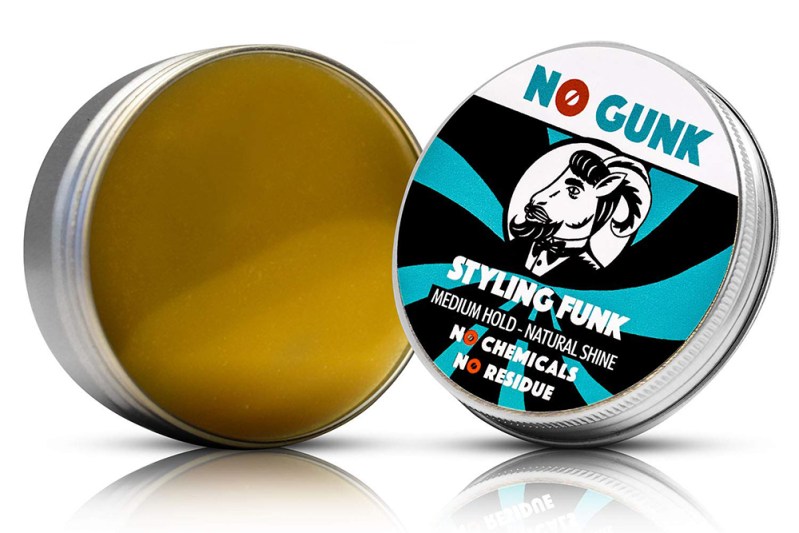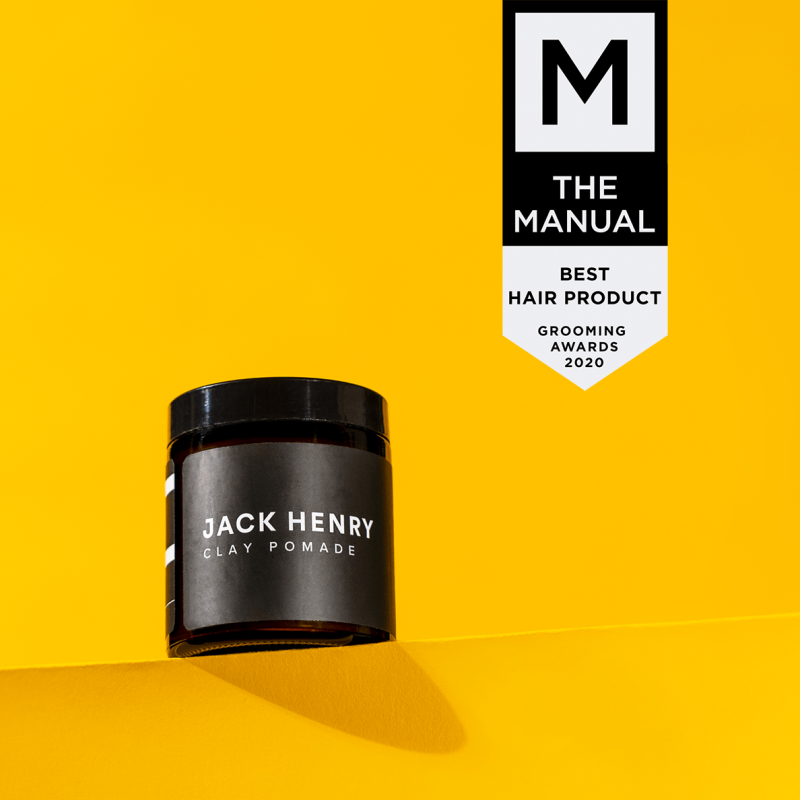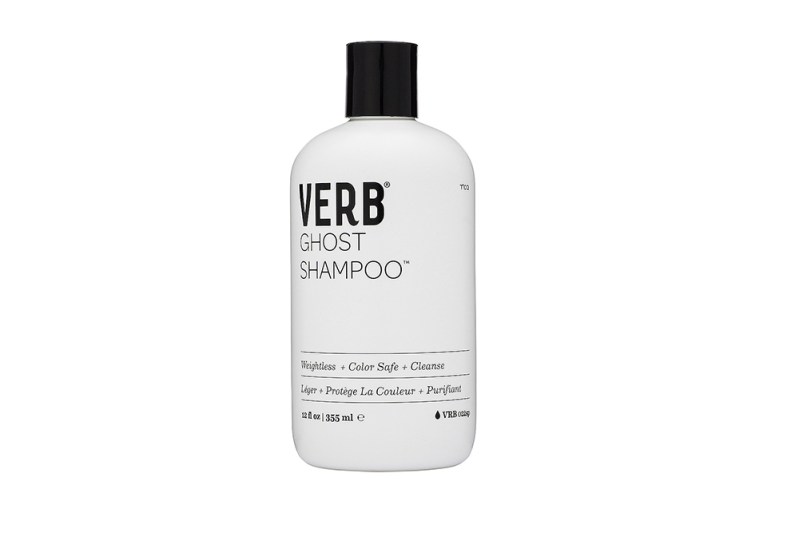
The last seven months or so have been an interesting time to be alive. Let’s face it, it’s not often that we see our grandparents scratching their heads and saying they’ve never seen anything like it. From COVID-19 to politics, 2020 has been one of those years that will be referred to in history lessons for decades, if not centuries, to come. Of course all of that upheaval also comes with a record-breaking amount of personal stress, too, manifesting itself in our bodies in all sorts of ways. For a lot of modern men, that tension is working its way out literally through hair loss.
It’s perfectly normal to experience some hair loss. Hair goes through phases just like the rest of us. Without getting too technical, there’s a growth phase, a transition phase, and a resting phase. Hair can grow for anywhere from five to seven years, depending on your genetics. That transitional phase, on the other hand, only lasts about ten days. The resting phase (the technical term is telogen) can last as long as three months, but that’s the point where slowly but surely the hair starts to loosen and come out. After about three months the whole process starts all over again. Usually.
Those of us with Male Pattern Baldness will lose hair due to genetics. The hair follicle starts to shrink and, after a while, that whole growth process just dies out. (Don’t despair, there is hope for that.)
Beyond genetics, though the stress of our current times — including the stress on your body if you have actually contracted COVID — may also lead to premature hair loss. (Editor’s note: We truly hope that hair loss is the only thing you have to cope with, should you be ill.) In fact, according to Dr Dayal Mukherjee, MD, at The Aura Clinic London, “Psychological factors such as stress, anxiety or any significant traumatic episode, may trigger or exacerbate certain types of hair loss.”
Dr. Craig Ziering is a hair restoration specialist with clinics in Newport and Beverly Hills, CA, Las Vegas, and New York City. He refers to this circumstance as telogen effluvium. Sure, it sounds like something sticky from Ghostbusters, but it’s actually the technical term for hair loss that happens after stress. And these past seven months or so have been all about stress.
“The coronavirus itself can cause inflammation, so people who are already hypersensitive may find that it’s bad for their hair,” Ziering tells The Manual. “We’ve even been seeing patients who aren’t sick suddenly losing more hair than usual. Men particularly are suffering because they are still, traditionally, seen as the head of the household. If they get even a little sick it can cause emotional stress. How will they provide for their families? Compound that with fluctuations in the stock market. Guys who own small businesses may feel it even more because they feel the stress of providing for their families as well as for their employees.”
Ziering goes on to point out that a lot of things can unmask underlying genetic hair loss that a patient might not normally experience until later in life. Men who are treated for cancer, for instance, may lose their hair temporarily, but it will grow back. If there is underlying Male Pattern Baldness, however, that may exacerbate hair loss into a more permanent condition.
“Sometimes it’s as simple as giving the patient a sense of control. Everything else in his life is spiraling beyond his power, now it’s his hair, too? It’s about breaking that cycle.,” says Ziering.
Use Natural Products
Sometimes that cycle may be as simple as using hair products that are healthier for your hair and scalp. Buildup from styling products can actually clog hair follicles, accelerating that telegenic effluvium response. Here are some of the best natural styling products we’ve tried.
No Gunk Natural Styling Wax — $24

Dr. Mukherjee’s comment sparked British grooming brand No Gunk to launch its lighthearted campaign, “Don’t Be a Receder Peter,” in September. The accompanying video shows a young, healthy-haired man transformed into an aged, bald one from using preparations with harsh chemicals and those that leave residue behind. No Gunk is in favor of natural ingredients like lava clay, shea butter, and argan oil.
Jack Henry Pomade — $24

Winner of 2020 Grooming Awards, Jack Henry’s rockstar product only contains four main ingredients — beeswax, coconut oil, bentonite clay, and lavender oil — to easily shape hair without damaging follicles.
Verb Ghost Shampoo — $18

Lots of drugstore shampoos contain some artificial ingredients that can further cause hair damage. Not so with Verb’s vegan shampoo, which is infused with hydrating moringa and sunflower seed extracts to thoroughly clean your mane. Plus, it’s free of harmful sulfates and parabens, and it’s cruelty-free.
Visit a Dermatologist
If you’ve tried changing products and are still experiencing rapid hair loss, don’t waste any time getting to a doctor. If a serious hair loss problem is diagnosed in time, it may be reversible within three to six months.
Dr. Ziering starts with topical medications like minoxidil or finasteride, an easy at-home treatment. In some cases he may move on to oral finasteride, which blocks DHT. DHT is a type of testosterone that works wonders for men when we’re going through puberty, but is not so friendly to your follicles when you get older.
“We also use laser therapy, where the patient wears a cap that stimulates the mitochondria, improving cell growth,” says Ziering. “Finally we also do exosomes injections, which is a form of stem cell therapy. The treatment nourishes the hair and basics all helps wimpy hair grow thicker.”
Finally, if it comes down to it, actual surgery may be an option, and doctors like Ziering can help with hair restoration and transplants.
Maybe the most important part of stress-related hair loss is to keep things in perspective.
“I’m a medical doctor. I deal with the patient as a whole,” says Dr. Ziering. “It’s important to remember that we are all in this together. Find something that’s good for your body: Meditation, exercise, rest, yoga, or whatever makes you feel better. Eat a high protein diet with fresh super greens and legumes. Don’t keep stress bottled up! Find somebody that you can talk to and share your feelings. Don’t be ashamed if it’s time to do something about losing your hair. Do what’s necessary to break that stressful cycle and feel like you’re doing something positive for yourself.”



